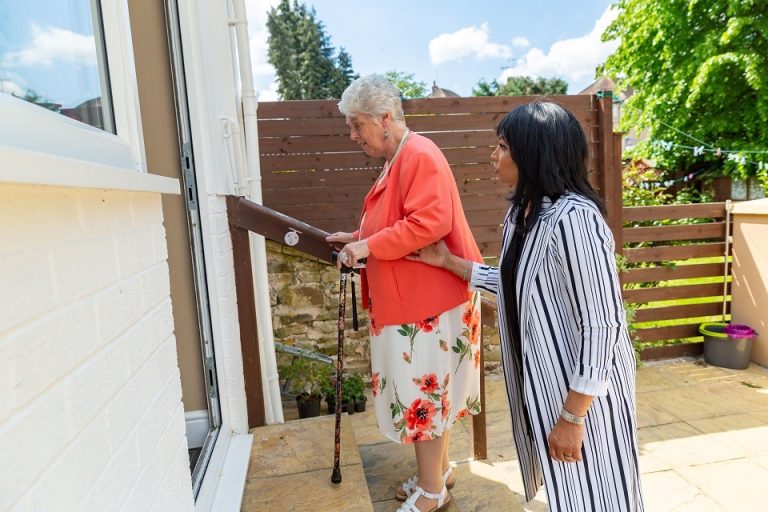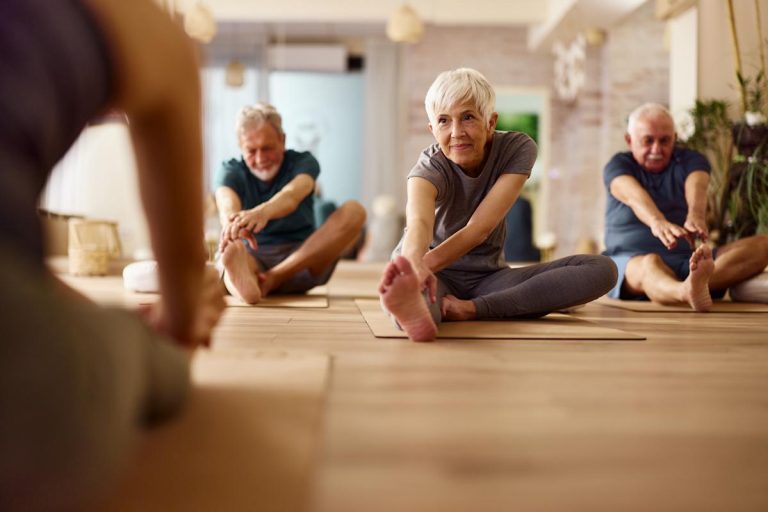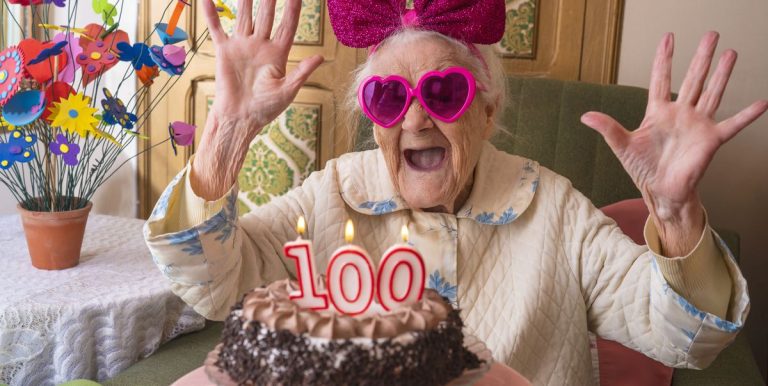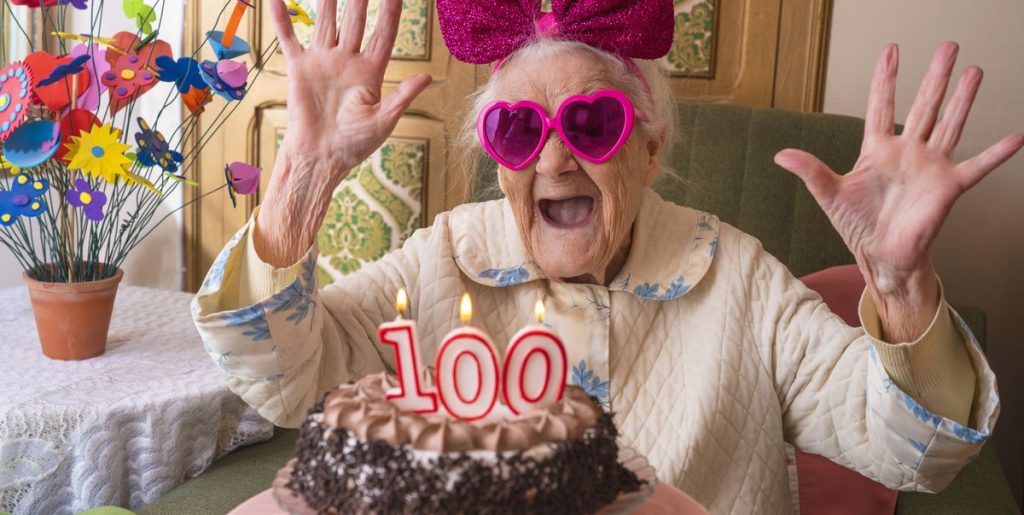
Except for a downward blip during the COVID-19 pandemic, American life spans have been getting longer and longer—men can expect to live to their mid-70s, while the average woman will be blowing out candles on her 80th birthday. But we all know that living long and living well are not necessarily the same thing. “One of the greatest gifts of the past century is the doubling of our life span,” says Sandra Bond Chapman, Ph.D., a cognitive neuroscientist and chief director of the Center for BrainHealth at the University of Texas at Dallas. But living to 100 may not seem so appealing if you picture yourself frail, homebound, and unable to do the things you enjoy or remember the people you love.
That’s why it’s just as important to focus on your health span—the number of years you remain in good health, sound of mind and body—with positive intentions. “We can take simple steps to optimize our brain health year by year, extending it into late life,” Chapman says. In addition to being physically active, eating healthfully, and staying socially connected and intellectually stimulated, one key to aging well is finding something to feel joyful about every single day. For inspiration and sensible, actionable tips, we asked experts on aging—including some impressive seniors who are walking the walk right now—for their advice on a happy, meaningful older age.
Assemble your chosen family
“No matter what the weather, my friends and I work out twice a week at our local CycleBar, but it’s about friendship more than fitness. We’re all a bit crazy, but we rallied together when one of our group lost her husband and then when another got divorced. If someone can’t join us because they don’t feel well, we drop off soup—or Mucinex. None of us live near family, so we want to be there to take care of one another.” —Sue Ross, 74, Flagstaff, AZ
Be the oldest beginner
“I first learned to kitesurf in my 50s. I was the oldest dude out there. It was hard at first, but I kept at it. When you’re out in the water, concentrating on what you’re doing, nothing else matters. When I’m engaged in an activity I love, be it work or recreation, the concentration is total, nothing else comes in, and the gratification is commensurate with the effort.” —Frederick Ballet, 74, retired orthopedic hand surgeon, Long Beach Island, NJ
Go beyond Sudoku
“The fact that everyone says puzzles help with cognitive health doesn’t mean they are the right activity for you. They can be extremely hard and frustrating and create anxiety, which isn’t productive. I recommend finding something that’s new and different for you, such as learning a new language, playing a musical instrument, or picking up a new hobby. These are some of the best ways to preserve brain function and keep your brain agile.” —Brent Forester, M.D., psychiatrist-in-chief and chair of the department of psychiatry at Tufts Medical Center
Spend time outdoors every day
“It has been proven scientifically that time in nature is good for us not only physically but mentally as well. It’s relaxing, it’s calming, and it’s balancing to be away from the man-made world, which can prompt sensory overload. So much of our lives today takes place staring at screens, but you’ll live more happily if you set aside time every day to take a walk in the park or at a nearby beach.” —Peter Gros, “in my 70s,” cohost of Mutual of Omaha’s Wild Kingdom Protecting the Wild
Be of service
“My attitude is this: I will do all I can, as much as I can, while I can. I’m known as Mother Cousar in my community, and ever since I can remember my life has been in some sort of service to others. I used to walk blind people to the store; I was a crossing guard, an usher in my church, and a foster parent to over 125 children. I was president of my neighborhood association for 35 years and just stepped down last year. I still volunteer and help others by distributing food and clothes from my porch. All this, plus a support system through the nonprofit Connectedly, helps me feel like I’m connected to my neighbors.” —Callalilly Cousar, 95, Philadelphia
Enforce your boundaries
“Women in my generation were always told to be polite and respectful, but as I got older I realized how squashed women were. It’s taken me quite a long time, but I’m finally learning to get rid of the ‘supposed-tos.’ For example, when a family member asked to stay with me for a week, I told her my tolerance for overnight guests stretched to just three nights. Though I really liked her, I knew that was my limit. She came for three days, and we had a lovely time.” —Jessica Reiner, 84, painter and ceramicist, New York City
Gather people
“As a former music teacher, I realized the other people in my independent living community needed some instruction on singing, so I volunteered to teach them and help build our residence choir. I knew that if I could get everyone together to sing, my neighbors would not only improve their voices but feel like they were part of the community too.” —Rhona Metrikin, 86, New York City
Make over your outlook
“Genetics plays a role in about 25% of your longevity, which means you have some control over aging. I think it’s important to consider what you think about aging. If you believe that once you get older there’s not much life left and that when you retire you’re not going to be as useful, that is going to be how you age. But if you look at aging and think it’s going to be a great time of life, it will be exactly that.” —Diane Lang, positive-psychology coach, educator, and author
Honor your strengths
“Accepting our ‘now,’ mistakes and all, can help us to move our focus to the good in our lives. Give yourself credit for what you do well, maybe even do better with age. Maybe your vocabulary is broader, your ability to make good judgments is better, or maybe you are already acing healthy behaviors. Take a moment to celebrate.” —Jessica Z.K. Caldwell, Ph.D., director of the Women’s Alzheimer’s Movement Prevention & Research Center at the Cleveland Clinic
Be an activist
“The way to thrive is through active participation around issues that affect your community. The grandmothers involved in the Friendship Bench program—therapy rooted in storytelling, delivered by trained elders—are noticeably more active and experience fewer chronic conditions such as hypertension and diabetes than their peers. Activism also gives people a sense of belonging and purpose and addresses loneliness.” —Dixon Chibanda, M.D., psychiatrist and founder of the Friendship Bench movement
Listen and learn
“I talk a lot and entertain people with my stories, but it’s what I’ve learned from my neighbors that amazes me. The year after my wife died, I started volunteering with Neighbors Who Care, driving people in my town to their doctor’s appointments. The saying ‘You get back more than you give’ is really true. I’ve taken one lady for cancer treatments several times, and even though she’s in constant pain, she’s still cheerful. Seeing how strong people are reminds me of what’s important in life, including family, a positive attitude, and faith.” —Ed Schuck, 88, Chandler, AZ
Support the next generation
“We know we’re not going to live forever, but helping others means we might be remembered. I designed a curriculum to help students navigate their life path. In it, they ask, Who am I? and Where do I want to go in life? When they take the time to write the answers down, they end up recognizing their own uniqueness and graduate with a life design that lasts a lifetime. It’s my way of leaving a legacy.” —Ed Hajim, 88, creator of Life Design Curriculum and author of On the Road Less Traveled
Keep moving and grooving
“Having to dance different steps and learn new dance combinations is a great way to boost those little gray cells. I truly believe that when you feel good about yourself and feel healthy, energetic, and vital, it makes all the difference.” —Judi Sheppard Missett, 81, founder of Jazzercise, who still teaches one class a week
Share your talents
“I love teaching others to paint. It makes me feel like, Gee whiz, at my age I can still offer things to people! It’s also fun when students notice how easy it is to lose yourself when you paint. For me, the time goes by so fast that sometimes I need to set an alarm to remind me to stop painting!” —Carole Masuhr, 85, self-taught watercolorist who teaches at The Park at Copper Creek in Chandler, AZ
Become obsessed with something
“I’ve been playing tennis since I was 6, but when I tried pickleball I got hooked. People have fun, they meet someone new, and they laugh. I was once beaten badly by a 92-year-old with a knee brace, and I thought, That’s what I call character-building. When we play, there’s a lot of trash-talking, but nobody takes it terribly seriously. It’s about the fun; the social aspect is energizing.” —Peter Galbraith, 86, Shelburne, VT
Take small steps
“You’re never too old to make lifestyle changes. When someone asks me how to start making changes, I ask them what the easiest thing might be to implement. If you want to go for a walk, start slowly and then ramp up to 30 minutes. Next time we meet, I’ll ask how quickly you’re walking and whether you can do something more moderate/vigorous, where you can talk but talking might be breathy. I like to move things along on a continuum. By the time you look back in one to two years, you’ll be doing 150 minutes or more per week.” —Thomas Holland, M.D., physician-scientist at the Rush Institute for Healthy Aging
Dress to express
“Dress in a way that connects you to your spirit. A fashion hack I believe works well is to think about styles you admire but think are for someone else. Try them, and try some hairstyle changes and maybe a lipcolor—or no lipcolor if you always wear lipstick. Expressing yourself in this way and doing all this is invigorating, exciting, and empowering.” —Norma Kamali, 80, iconic fashion designer
Put yourself out there
“I think I may be the oldest woman on Tinder, but I’ve definitely met a few fellows that way. Nothing has turned out to be long-term, but it’s fun for a date or two. I’ve also made it a goal to try to meet new people every day. I always say that if you’re feeling shy you can try to break the tension with a joke and a smile to kick things off on your first interaction. You should remember that the person you’re afraid to speak to could be shier than you are!” —D’yan Forest, 90, stand-up comedian, New York City
Go far and wide
“When you travel, your senses come alive and your perspective expands. It’s incredibly important to stay inspired and enlightened, and studies have shown that women who vacation at least twice a year are about eight times less likely to have a heart attack than those who take a trip only every six years. When you step away from the daily grind, you gain the space and perspective to reflect, reassess, and see your life with fresh eyes.” —Doni Belau, travel expert and founder of Girls’ Guide to the World, a women-only tour company
Eat to beat inflammation
“We can fight chronic inflammation—linked to diabetes, heart disease, and arthritis—by eating plenty of anti-inflammatory foods every day. These include olive oil; beans and legumes; green leafy vegetables; blueberries, raspberries, and cherries; nuts; and at least two servings per week of fatty fish. Using spices like cinnamon, minced garlic, and turmeric and drinking two cups of caffeine-free green tea per day can help too. For healthy aging, emphasize variety and diversity in your diet.” —Meridan Zerner, R.D.N., at The Cooper Clinic
Brain train for optimism
“When bad things happen or we make mistakes, the emotional brain kidnaps our thinking patterns, leading to negative thoughts. To calm the negative self-talk, we can kick our brains into ‘possibility thinking’ gear by generating ways to do better next time or learn from missteps. This type of thinking activates the brain’s frontal networks, which in turn quiets the amygdala, the emotional brain system.” —Sandra Bond Chapman, Ph.D., a cognitive neuroscientist and chief director of the Center for BrainHealth at The University of Texas at Dallas
Act with urgency
“Once you’re 70, you become more aware of your mortality. You realize you’re here and then you’re not, so your job is to make the ‘here’ part as meaningful as possible. This creates urgency, and urgency creates action. This isn’t meant to be morbid—it’s meant to be motivating. When you really think about it, healthy aging means making the most of the time you have left.” —Karen Salmansohn, behavioral change expert and author of Your To-Die-For Life: How to Maximize Joy and Minimize Regret…Before Your Time Runs Out
Use your grandma skills
“The hours I spend holding babies in the neonatal intensive care unit at my local hospital every week make my heart feel so good. It’s gratifying to help the nurses and the babies. It’s critical for the babies to be held, for them to hear your voice and your heartbeat. I have healthy children and grandchildren, and that’s a gift I don’t take for granted. I’ve always felt that nothing is a given and life turns on a dime. So if you have the capacity to open your heart, do it.” —Maralyn Carr, 82, Yorktown Heights, NY
Embrace intimacy
“Research shows that the majority of older Americans say sex is important at any age. It’s the expectations surrounding sexuality that need to change. If we can be more flexible in our definitions, intimacy is possible for most people. This matters, because physical touch helps you feel desired. It lets you feel important in the eyes of your partner, and that is one of the ingredients of a relationship that will endure.” —Allison Gilbert, coauthor with the late Dr. Ruth Westheimer of The Joy of Connections: 100 Ways to Beat Loneliness and Live a Happier and More Meaningful Life
Stay in the moment
“I never look back; instead, I look ahead. I don’t regret any mistakes I’ve made; I don’t even think about them, since they’re in the past! And now that I’m 103, I don’t look too far into the future, at least not past 106 or 107. I think about enjoying my life today.” —Deborah Szekely, 103, cofounder of fitness spa Rancho la Puerta and part of Medtronic’s new campaign focused on living to 150
Recenter yourself
“As you age, your world can get a little smaller. There isn’t as much company, and there may be less all-around engagement with others, especially if you’ve lost loved ones. The challenge is to realize you’ve entered a new normal. Once you acknowledge this, you need to decide what you want to do now. Asking yourself how you want to move forward and how you want to build a new life, especially if you’ve lost a spouse, is the exact right thing to do.” —Jill S. Cohen, family grief counselor, New York City
